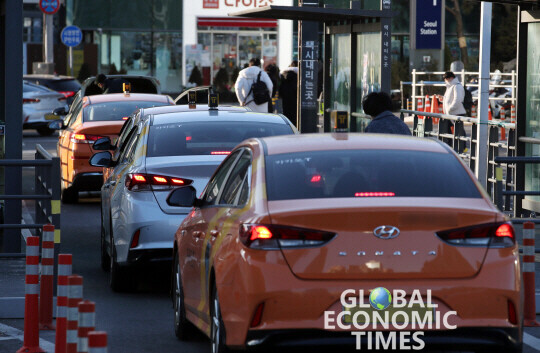
SEOUL — The immense global popularity of K-Content, spanning everything from K-pop to K-dramas, has driven a massive wave of foreign tourists to South Korea. Yet, for many, the on-the-ground experience is proving to be less than the glamorous picture painted by the media. A sharp increase in complaints, particularly regarding taxi services and shopping, is raising concerns about the country's tourism infrastructure.
New data reveals that a staggering 92.6% of all tourism-related complaints filed last year came from foreign visitors, with their total number of grievances surging by 35.8% since 2019. In contrast, complaints from domestic tourists dropped by 21.0% in the same period. This indicates that the boom in international visitors is uncovering significant pain points within the local service sector.
According to a report submitted to the National Assembly's Culture, Sports, and Tourism Committee by Rep. Im Oh-kyung of the Democratic Party of Korea, the total number of complaints from foreigners reached 1,478 cases last year, up from 1,088 in 2019.
The Top Tourist Headaches: Shopping and Taxis
The grievances are highly concentrated in two key areas: shopping and transportation.
Shopping-related complaints topped the list, accounting for 25.8% of the total. These included disputes over prices, issues with tax refunds, and difficulties with exchange or refund procedures. This suggests that some tourists are being subjected to price gouging or confusing retail practices, tarnishing the experience of shopping for popular Korean goods.
Hot on the heels of shopping are taxi-related complaints, which made up 20% of the total. The frustrations reported by tourists primarily involve unfair fare collection, drivers refusing to use the meter, and instances of refusal to take passengers.
Additional search data further highlights the severity of the taxi problem, with reports detailing drivers being caught and fined for practices like demanding inflated fares, switching off meters, and taking unnecessary detours. In one high-profile incident, a driver reportedly demanded KRW 45,000 for a trip that typically costs around KRW 12,000. These acts of misconduct are directly undermining South Korea's reputation, prompting online users to call for swift and strict penalties.
The rest of the complaints were distributed among:
Accommodation (16.7%)
Airport/Airlines (10.7%)
Restaurants (6.4%)
Calls for Infrastructure Overhaul
In response to the data, Rep. Im Oh-kyung stressed the urgency of improving the tourist experience. "We must continually enhance our tourism infrastructure to meet the demands of foreign tourists," she stated.
Key improvements suggested include:
Improving access to transportation information for non-Koreans.
Streamlining identity verification processes for foreign nationals.
Facilitating easier payment methods for international credit cards.
The rise in complaints comes at a critical time as the nation seeks to fully capitalize on its cultural boom. While the appeal of K-Culture brings visitors, the service sector's failings risk leaving them with a negative impression that could discourage repeat visits. Seoul city officials have already launched crackdowns on illegal taxi practices, including deploying personnel for on-site checks and introducing QR code-based reporting systems for foreign tourists. However, the recurring nature of these complaints suggests that more systemic and long-term reforms are needed to ensure that the real Korea lives up to the expectations set by 'K-Culture.'
[Copyright (c) Global Economic Times. All Rights Reserved.]




























